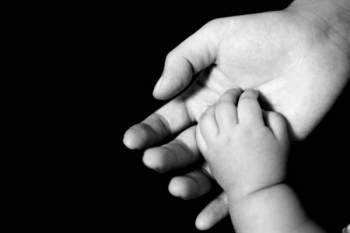
-
CHILDREN LAWS
- Children's Rights
- Crime Against Children
-
Child Abuse
- Child Abuse Statistics
- Child Sexual Abuse
- Child Abuse Prevention
- Child Abuse Cases
- Child Abuse Facts
- Child Abuse Hotline
- Sings of Child Abuse
- What is Child Abuse
- Types of Child Abuse
- Child Abuse and Neglect
- Effects of Child Abuse
- Domestic Violence
- Domestic Violence Statistics
- Domestic Violence Facts
- Family Counseling
- Domestic Violence Hotline
- READ THIS
- Risk Factors
- Child Abuse
-
Child Abuse Resources
- All You Need to Know About Child Abuse Books
- Articles
- Beware Abuse Begetting Abuse
- Breaking the cycle
- Child Protective Services
- Easy To Read Child Abuse Blurb
- Forms
- Forums
- Make Sure You Know The Cases of Child Abuse
- Make Sure You Know Your Child Abuse Resources
- Recognizing and Preventing
-
Statistics
- All You Need To Know About Child Abuse Statistics
- All You Need to Know About The Child Abuse Statistic
- Be Aware Child Abuse Can Cause Death of a Child
- Generational Trend
- Learn About The Statistics on Child Abuse
- Statistics Linking Child Abuse and Later Criminality
- Understand The Consequences of Neglect
- Understanding The General Statistics
- What Are The Consequences of Abuse
- Understanding Child Abuse Charges
- Understanding the Causes of Child Abuse
- Warning Signs
- What Are the Changes in Social Perception
- Support Group
- Reporting Child Abuse
- Effects of Child Abuse
- Spousal Abuse
-
Types of Child Abuse
- Abandonment
- Abuse Focused Cognitive Behavioral Therapy
- Abuse vs. Discipline
- All You Need to Know About The Types of Abuse
- National Center on Shaken Baby Syndrome
- Neglect
- Parental Drug Abuse
- Quick Overview of The Psychological Types Of Abuse
- Quick Overview to Sexual Child Abuse
- Shaken Baby Syndrome
- Types Of Abuse Emotional
- Types Of Abuse Physical
- What Is The Shaken Baby Alliance
- What is Domestic Violence
- Domestic Violence Laws
-
Child Abduction
- Adam Walsh Child Protection and Safety Act
- Amies Law
- Causes for Abduction
- Child Trafficking
-
Domestic Abduction
- Domestic Child Abduction At A Glance
- Easy Overview of Sex Offender Registration
- Missing Children's Day
- National Center for Missing and Exploited Children
- Senate and House Caucus on Missing Exploited and Runaway Children
- What You Must Know About Child Protective Services
- What You Need to Know About The Missing Children Cases
- Window Legislation in States
- Extradition Treaties Interpretation Act of 1998
-
International
- Africa
- All You Need to Know About International Child Abuse
- Austria
- Brazil
- Causes of International Child Abduction
- Easy Overview to International Child Abduction
- Foreign Countries with Child Abduction Issues
- Foreign Countries with Child Abduction Issues Overview
- Important Information About The Rise in UK Child Abduction
- Mexico
- Must Read Facts About International Abduction Prevention
- What You Need To Know About The International Parental Abduction in Japan
- What You Should Know About International Child Abduction
- What You Should Know About World Wide Increases
- Megans Law
- Overview
- Parental
-
Statistics
- Be Aware of the Dangerous Environments for Child Abduction
- Be Informed About The Lies Used By Strangers to Lure Children
- Be Well Informed With General Safety Tips
- Easiest Way to Recognizing Abuse
- Facts You Need to Know About Child Abduction Prevention
- Facts You Need to Know About The Country Wide Child Abduction Statistics
- Must Know How Parents Can Protect Their Children
- Quick Overview of the Child Abduction Statistics and Patterns
- Read This On How Children Can Protect Themselves
- Returned Vs. Missing Children in Child Abductions
- What Are The Trends in Child Abduction
- What You Didn't Know About The Chances of Child abduction increase
- Your Guide to Child Abduction Statistics
- Suzannes Law
- What To Do If You Have A Missing Child
-
Children's Rights
- Adoption and Safe Families Act of 1997
- Child Custody Laws
- Child Abuse Laws
- Child Labor Laws
- Education Laws
- Special Education Law
- No Child Left Behind Act
- Meghans Law
- Abduction
-
Child Abuse
- Child Abuse Prevention and Enforcement Act of 2000
- Child Abuse Prevention and Treatment Act
- Child Abuse, Domestic Violence, Adoption, and Family Services Act of 1992
- Differences in Mandatory Reporting
- Easy Guide to United Nations Viewpoint
- How Can I Prevent Childhood Bullying
- Knowing The Legislative Focus
- Quick Guide to Varying Definitions of Abuse and Neglect
- Quick Overview on Child Abuse Laws
- Read This Before Going To A Child Abuse Attorneys
- Role in Creating Child Abuse Laws
- Simple Guide to Child Abuse Law
- Social Services During A Child Abandonment Case At A Glance
- Ways to Combat International Child Abuse
- What are the Piercing Laws
- What Are The State Associated Penalties
- What is Psychotherapy
- What is the Shaken Baby Syndrome Laws
- What You Must Know About Child Rights
- What You Need to Know About Representation of Child in Legal Proceedings
- What You Need to Know About The Battered Child Syndrome Law
- Your Easy Guide to State Role In Child Abuse Laws
-
Adoption
- Adoption and Safe Families Act
- Adoption Assistance and Child Welfare Act of 1980
- All You Need to Know About Children Laws Overview
- Easy Guide to Step Parent Adoption
- Intercountry Adoption Act of 2000
- Quick Overview on The Varying State Laws Adoption Laws
- Quick Overview to Adoption Law
- Safe Haven Laws
- Uniform Adoption Act of 1994
- Your Guide to Adoption Laws
-
Legitimacy
- All You Need To Know About Legitimacy Citizenship
- Easy Guide to Understanding Legitimacy Implications Of Donated Sperm
- Easy to Understand Guide to Legitimacy Historical
- Find Out About The Recent Increases in Illegitimacy
- Knowing The Legitimacy Statistics and Trends
- Knowing The Legitimacy Stigma
- Legal Considerations You Must Know
- Legitimacy Definition At A Glance
- Make Sure You Know The Reasons For Less Social Concern
- Quick Overview of Coinage of Bastardy
- Read This Legitimacy Overview
- Understanding Legitimacy Social Implications
- Understanding The Issues To Modern Legitimacy
- Understanding The Legitimacy Issues
- Understanding The Push Towards Legal Equality
- What Are Heredity Titles
- What are the Implications on Inheritance
- What Are The Politics of Legitimacy
- What Does It Mean to Be Legitimated
- Juvenile
- JV - Laws affecting minors
-
JV-School Laws
- Intelligent Design vs. Evolution
- Locker Searches At A Glance
- Make Sure You Know About Religion in School
- Make Sure You Know the Laws in School
- Understanding Freedom of Speech
- Understanding School Prayer
- Understanding the Juvenile Justice Process
- What is Drug Testing
- What You Need to Know About School Uniforms and Freedom of Expression
- Foster Care
- Paternity Laws
- Child Labor
- Medical Consideration Laws
- Legislative Reform
- Surrogacy Laws
-
Adoption
- What Can RainbowKids Do For Me
- Adoption
- Adopt a Child
- Adoption Statistics
- Adoption Agencies
- Adoption Services
- Adoption Process
- Adoption Records
- Adoption Photolistings
- Adoption Search
- International Adoption
- Haiti Adoption
- Quick and Easy Outline to Adoption
- All You Need to Know About Children Unprepared For Adulthood
- Understanding Experimental Testing
- Issues Presented by Foster Care
- What Are the Possible Financial Incentive
- What Are the Risks of Psychological Issues
- Sociological Studies of Foster Care
- Foster Care Independence Act
- Understanding Older Children Adoption
- Quick Overview on Orphanages
- Quick Guide to Domestic Abuse
- International Orphanages
- Orphanages Origins At A Glance
- Easy to Understand Orphanages Overview
- Children Aging out
- Don't Forget About The Children Waiting for Adoption
- What are the Developmental Issues
- What Are The Difficulties in Adoption
- Education
- What Are The Requirements for Becoming a Foster Parent
- Foster Parenting
- Russion Adoption
-
Foster Parent Adoption
- Foster Care Adoption Associated Cost
- Foster Care Adoption Governing Laws At A Glance
- Government Assistance
- Know The Foster Care Adoption Statistics
- Special Needs Foster Adoption
- Understanding Toddler Adoption
- What Are The Benefits of Foster Care Adoption
- What You Need to Know About Foster Care Adoption
-
Foster Care
- All You Need to Know About Residential Treatment Centers
- Certification Placement
- Children's Aid Society
- Creation of USDHHS
- Foster Care Governance
- Foster Care History
- Foster Care Information Jurisdiction
- Involuntary
- Make Sure You Understand THe Government Involvement in Foster Care
- National Foster Care Month
- Orphan Train Movement
- Past Failures of American Foster Care
- Quick Overview of State Variations Foster Care Governance
- Read This Before Attending an Orientation To File Application
- Role of Charity and Good Will
- System Funding
- Types of Children in Foster Care
- Understanding The Federal Role
- Voluntary
- What Are The Types of Adoption
- what is Foster Care
- Your Guide to Foster Care Information
- Problems
- Reform Groups
- Reform Trends
- Photolisting
- Process
- Records
- Financial Issue
- LGBT
- Organizations
- Biological Roots
- Adoption Resources
-
Statistics
- All You Need to Know About Interracial Adoption
- Country wide Trends Adoption Statistics At A Glance
- Intercountry Adoption At Glance
- Private Adoption At A Glance
- Public Adoption At A Glance
- Quick and Easy Guide to Adoption
- Quick Blurb About Special Needs Adoption
- Step Parent Adoption At A Glance
- What Are The Adoption Statistics
- What is Familial Adoption
- What You Need to Know About International Statistics
- Post-Adoption
- Types of Adoptions
-
International
- Be Aware of the Problems with International Adoption
- Easy Overview of International Adoption
- Make Sure You Know The Requirements for International Adoption
- Understanding the General Process to Adoption
- What Is International Adoption
- What You Need to Know About International Adoption Finding Biological Roots of Adopted Children
- Kinship
- LGBT Adoption
- Single-Parent
- Special Needs
- Step-Parent Adoption
- Single Parent Adoption
- Baby Adoption
- Open Adoption
- Gay Adoption
- Foster Care Adoption
-
Emancipation
- Age Majority
- Age Of Majority Definition
- Burden of Proof
- Cases
- Emancipation of Minors
- Financial Emanicipation
- Make Sure You Know The Implications of Child Emancipation
- Marital
- Quick and Easy Definition of Child Emancipation
- Read This About Child Emancipation Lawyers
- Ways of Emancipation
- What Are The Reasons Children will Emancipate
- Child Pregnancy
- Federal
- Guardianship
- History of Children Law
-
Juvenile
- All You Need to Know About Family Patterns
- Careers
-
Court
- Kent v. United States
- Make Sure You Know About Juvenile Record
- Make Sure You Know The Implications of Certain Severe Offenses
- Make Sure You Know The Reasons for Different Treatment
- Quick and Easy Guide to Juvenile Court Legal Representation
- Quick Overview of the Juvenile Court
- What is the Death Penalty
- What is the Juvenile Court Jurisdiction
- Detention Centers
- Easy to Understand Definition of Minor Juvenile
- Find Out Who Oversees Juvenile Detention in America
- Gangs At A Glance
- Justice Process
- Juvenile Boot Camp
- Juvenile Court
- Juvenile Crime
- Juvenile Delinquency
- Juvenile Detention Center
- Juvenile Hall
- Juvenile Justice
- JV Centers
- Know the Center on Juvenile and Criminal Justice
- Know The Other Types of Facilities for Delinquents
- ODJJP
- Probation
- Quick Overview on Drug Abuse
- Rights
- Special Protections under Law At A Glance
- Statistics (JV center)
- Understanding Juvenile Detention Rehabilitation
- What Are The Implications Juvenile Detention
- What Are the Programs and Services Provided
- What is the Purpose of Juvenile Halls
- What You Must Know About Becoming Repeat or Adult Offenders
-
Legal Gaurdianship
- All You Need to Know About Medical Coverage
- All You Need to Know About Self Representation
- All You Need To Know About Step Parent
- Conservatorship vs Guardianship
- Definition Legal Guardianship
- Easy Guide to Benefits Subsidies for Legal Guardian
- Easy Guide to Legal Guardianship
- Easy Guide to the Process of Becoming a Legal Guardian
- Easy Guide to Type of Gaurdians
- In Court Overview
- Make Sure You Are Aware of The Other Concerns
- Make Sure You Know The Responsibilities of a Legal Guardian
- Make Sure You Understand The Permanency of Guardianship
- Make Sure You Understand The Processing Period
- National Guardianship Association
- Quick and Easy Blurb to Legal Guardian
- Understand The Court Fees and Cost Before Becoming A Legal Gaurdian
- Understanding Guardian ad litem
- Understanding The Courts Role in Legal Guardianship
- What Are Reasons for Legal Guardian Appointment
- What Are The Usage with Disabled Individuals
- What Can A Guardianship Lawyer Provide For You
- What is a General Guardian
- What is an Home Investigation
- What is Natural Guardian
- What is Special Guardian
- What is Temporary Guardian
- What Is The Purpose of Legal Guardianship
- What You Should Know About Types of People Appointed as Legal Guardians
- Your Easy Guide to the Application Petition Process
- Your Guide To Finding a Lawyer
- Minors and Alcohol
- Agencies
- Charges
-
Paternity
- All You Need To Know About Establishing Parental Rights
- Groups
- Home- Testing
- Legal Concerns
- Obligations and Rights After Determination At A Glance
- Paternity Lawyer
- Paternity Test Regular Overview
- Quick And Easy Guide to Paternity Law
- Quick Outline of the Legal Indications
- Quick Overview of Paternity in Question
- Quick Overview of the Default Judgment of Paternity
- Rights (expand)
- Understanding DNA
- What are the US Testing Guidelines
- What You Must Know Before Finding a Lawyer
- What You Need to Know About Paternity
What Are the Programs and Services Provided

Detaining and committing underage offenders to juvenile facilities may be good for curbing the actual use of drugs and may generally be helpful in separating children from harmful influences. In general, a wide variety of in-facility services are available at secure institutions specifically designed for juvenile offenders.
Juvenile programs within youth detention centers try to cover all of the possible deficiencies and issues of delinquent youth regarding their perception as well-rounded, functioning individuals. Of course, depending on the sizes and exact purposes of juvenile facilities, the extent of what they may have to offer those within its walls may be limited. However, among the services these buildings may put forth include classes, mental health and special needs assessments, basic health care, drug dependency seminars, physical education, and informational sessions on gang violence, sexually-transmitted diseases and other important issues facing all young people.
As noted, for juvenile facilities to do the reformational job they are meant to do, they must attack the problems that keep youths in and out of the justice system at their core. However, in popular practice, this is easier said than done. Overcrowding in detention centers/jails and lack of available funding to meet the needs of the sum of the juvenile delinquent population can lead to inconsistent if not absent application of rehabilitative juvenile programs. Consequently, it is up to others to try to fill the void of which institutions, despite their best efforts, are not capable.
In some communities, 24-hour supervision is possible without committing a juvenile to a secure facility. For example, community residential centers have been found in some cases to reduce arrest rates of juvenile delinquents in some communities.
More experimental juvenile programs that expressly seek to keep children out of the public domain but still under the watchful eye of the community may also be effective in keeping children out of juvenile facilities and adult prisons down the road. Multi-systemic therapy setups founded around the United States have tried to approach child treatment in an all-encompassing way, insisting on services at home, school and elsewhere. However, quite evidently, parents, teachers, health professionals, and caseworkers would have to be on the same page when it comes to a child's guidance.
Related
Related Articles
Link To This Page
Comments
All information on our site are collected from Internet. Please contact us if any information is a violation of your rights, we will remove them from our site. You can send email to: zhongyuan@live.com.



















